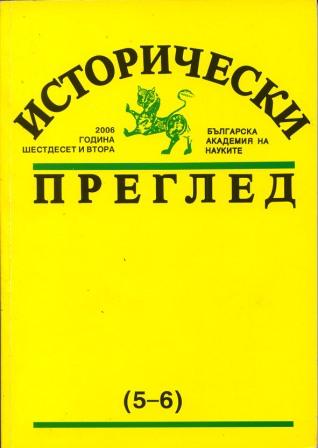Парламентарни избори и нарушения през 1931 г.
Parliamentary Elections and Violations in 1931
Author(s): Todor GalounovSubject(s): History
Published by: Институт за исторически изследвания - Българска академия на науките
Summary/Abstract: On 16 April 1931 Bulgarian Parliament voted governmental draft for parliamentary election reforms. These reforms envisaged several amendments: 1) formations of two types of electoral registers: local and central; 2) implementation of 2% legal threshold to enter parliament; 3) formation of pre-election coalitions only upon decisions of the central party leadership. The parliamentary elections, which took place on 21 June 1931, were the first to be held in accordance with the new parliamentary election reforms. The elections were characterized with violations typical of Bulgarian political life. The elections of 21 June were characterized with high percentage voters - out of 1 543 847 Bulgarian citizens possessing the right to vote, 1 264 655 Bulgarians voted, which means 81,91% of eligible Bulgarian voters. The new electoral system, which strengthened the partisanship and party struggles in Bulgarian political life combined with the numerous abuses during parliamentary elections, resulted in the growing dissatisfaction of society with the political parties. The decline of political leaders. prestige combined with the economic crisis in the country decisively contributed to the public compromising of political parties. Accordingly, the coup d’etat of 19 May 1934 was a logical consequence of the shortcomings of the Bulgarian parliamentary system of government. The new electoral system significantly contributed to these shortcomings by its toleration of partisanship rather than of personal qualities of some political leaders.
Journal: Исторически преглед
- Issue Year: 2007
- Issue No: 5-6
- Page Range: 49-84
- Page Count: 36
- Language: Bulgarian
- Content File-PDF

